Fear the clown
Why clowns make the greatest villains.
July 14, 2023
Clowns are supposed to make children laugh and have fun. But do they? A common meme in movies and series is the clown that ruins the party by being boring or scaring the children. Have you ever heard kids talk about how fun a clown show was? Have any children asked to have a clown at their birthday party, ever? Parents think their kids love clowns, but I don’t think that’s usually the case.
There’s something eerie about them. Sorry, Patch Adams. A grown-up in a funky costume doing silly things for the children’s amusement. What is happening inside someone’s mind to be into that? How does one decide to become a clown? I can only wonder, but one thing is clear: I don’t ever want to fight a clown. That’s what nightmares are made of. Clowns make the best villains.
Famous Clown Villains
The Joker from Batman
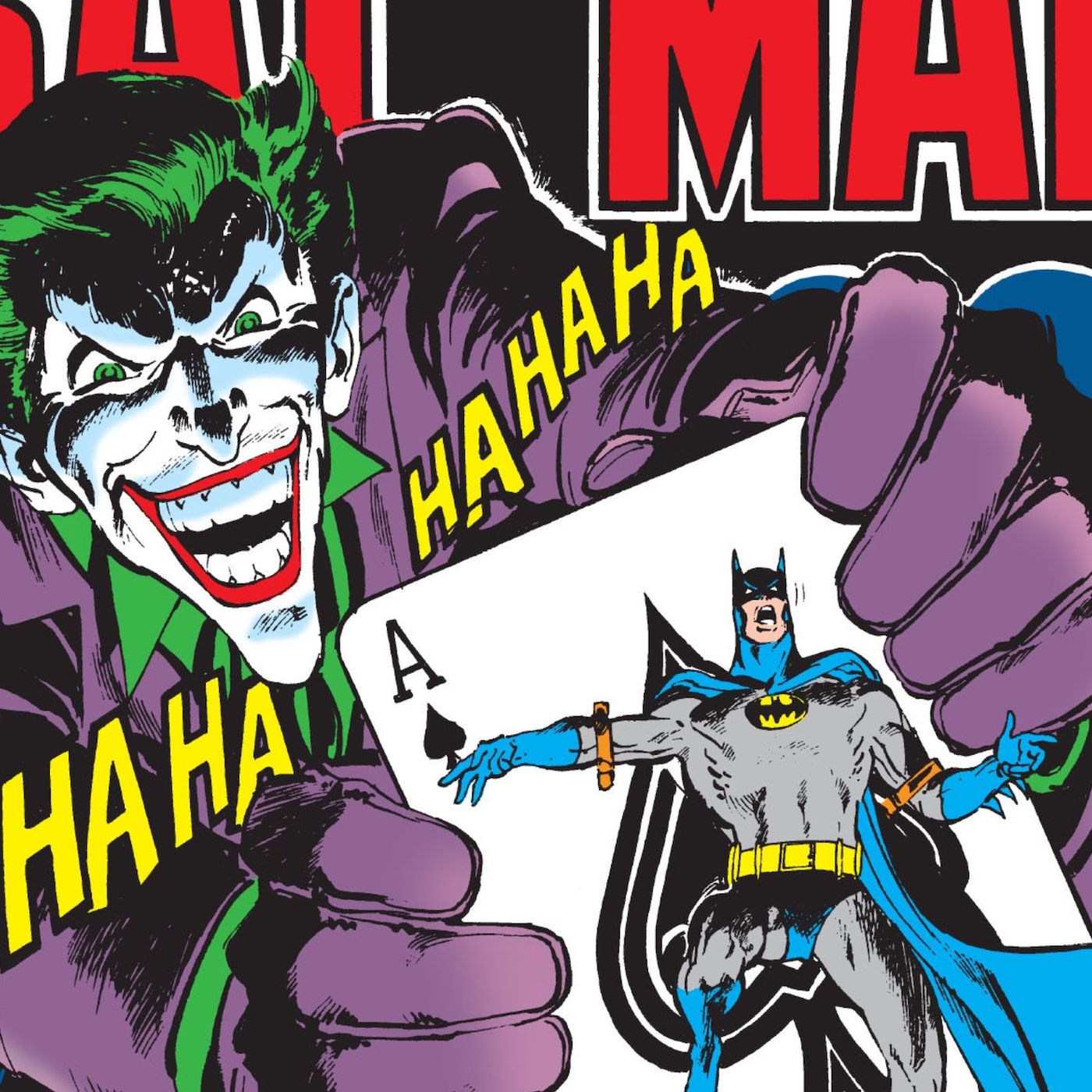
Batman’s legendary nemesis, the Joker is an awesome character in all of his incarnations. It’s no coincidence we are getting the 4th Joker in a decade.
No matter the specifics of his background or kind of mental illness, having a crazy, funny guy fighting a serious, millionaire protector is a match made in heaven.
It from It
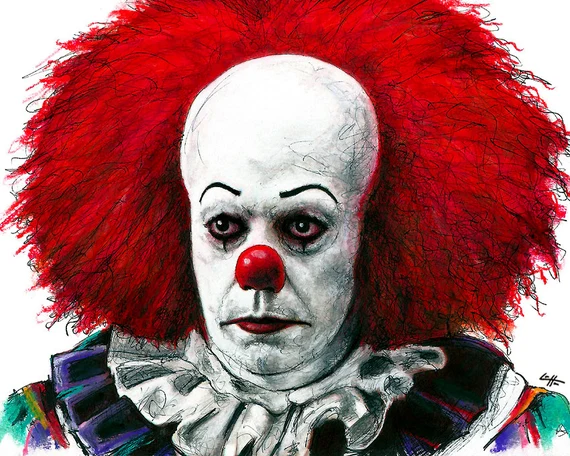
From Stephen King’s book, the movie based on the book, and the movie based on the movie based on the book. “It” is a children-eating monster appearing as a clown to lure children. Notice something: do the kids in the movie ever say “Cool, a clown!“? Or are they already scared when the clown appears? I agree with Stephen: we don’t need any monsters; clowns are already frightening enough.
The Mule from Asimov’s Foundation
Spoilers ahead
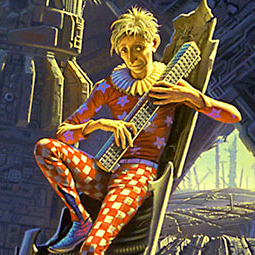
Magnifico Giganticus, a clown, is the villain from Asimov’s Foundation saga. While he poses as a fool, he has strong mental powers, such as mind-reading and mental manipulation. First, he wants to control the universe, and he succeeds. Then, he seeks to find and stop a group of people with the same mental powers as his, the Second Foundation, since they are the only possible challenge he can face.
Spoilers end
Kefka from Final Fantasy VI
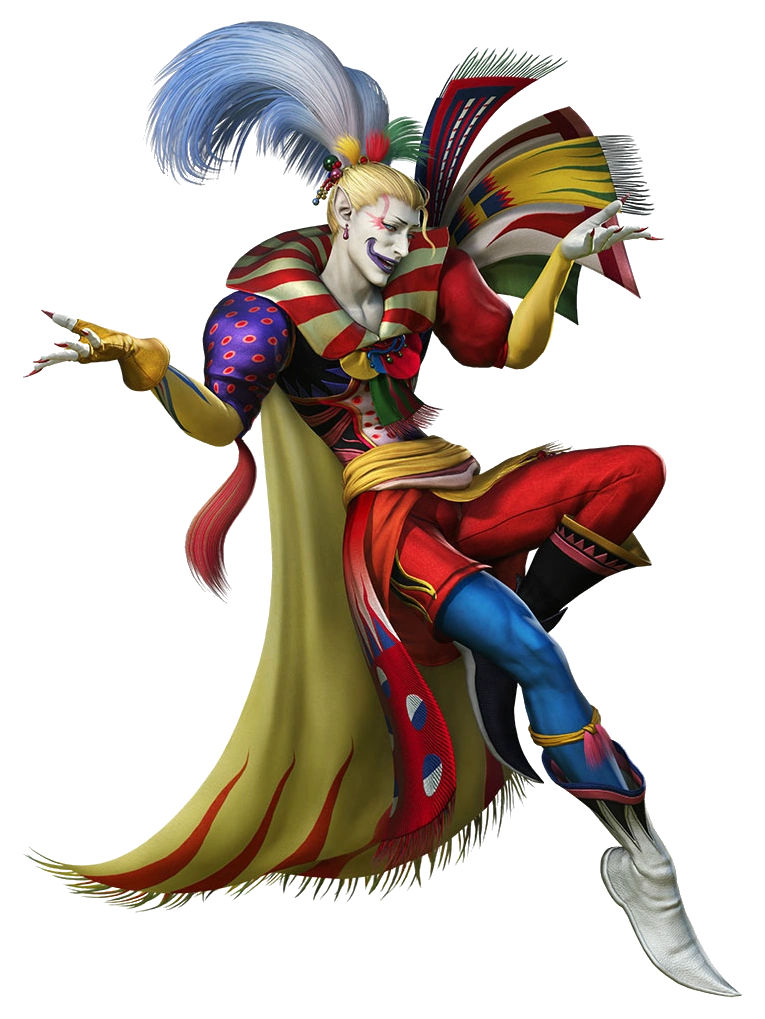
Kefka is the main antagonist in Final Fantasy VI. He is consistently ranked as one of the best video game villains of all time.
Read my lips—mercy is for wimps! There’s a reason ‘oppose’ rhymes with ‘dispose’…If they get in your way, kill them!
— Kefka Palazzo
Krusty from The Simpsons (Honorable mention)
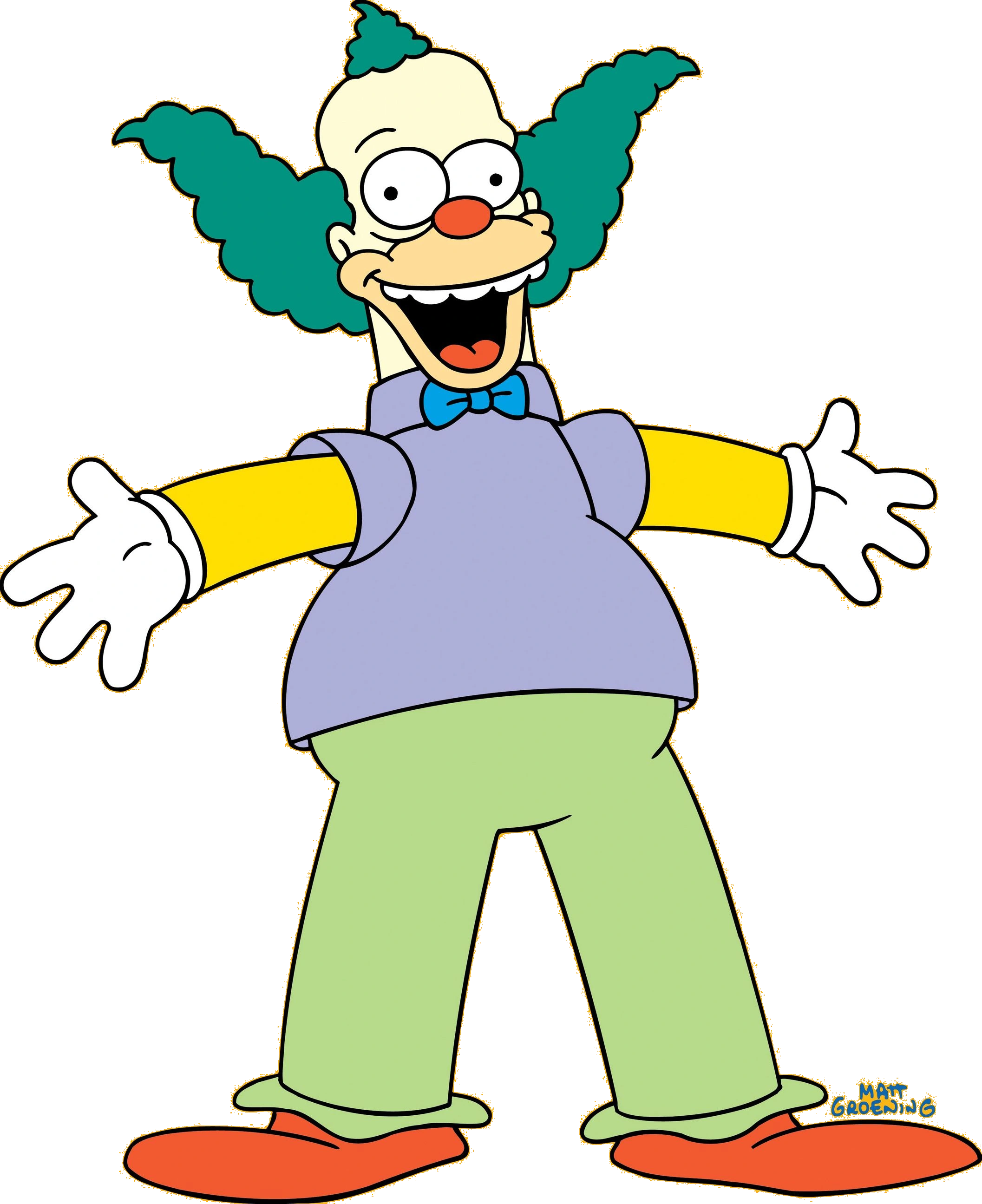
Krusty, from the Simpsons, is not technically a villain, just a despicable human being. He has done a lot of bad things, from endorsing faulty products to betting and losing her daughter’s violin in a poker hand.
He’s always in full costume. “This ain’t make-up”, he jokes once. He’s a gambler, degenerate, and alcoholic, but he’s not a villain, and Bart loves him. The Simpsons goes one step further (as they always do), and makes another character the actual bad guy: Sideshow Bob.
But Why
But why is this? Why do they make such fun, deep, and complex antiheroes?
Unpredictable and Confusing
We never know what they are going to do next and we don’t understand their motivations. Being unpredictable makes them great villains since it adds a lot of surprise. Their motivations are confusing, so they are like a riddle we want to solve.
Irrational
They don’t do the logical thing. For other types of villains, such as mad scientists, that is one piece of information we always can count on. Lex Luthor, or Neo Cortex, would always use their brains to maximize damage and execute their evil plans. But life is not like chess. If you are trying to seed chaos, there’s something better than a cold calculated strategy: no plan and no strategy.
Do I really look like a guy with a plan?
— The Joker
Nobody Takes Them Seriously
They are easy to ignore. They look inoffensive, fun, even harmless. They even have a red big nose that goes “boink!“. Who would ever consider them a threat? Yet, there they are. Perfect antiheroes.
They Make Fun of Themselves
Being able to make of yourself means you have a healthy amount of self-esteem, or so they say. In the case of evil clowns, it’s not laughter they are after, but a way to amuse and entertain. They tend to have grand ambitions, clown-shoe-sized ambitions.
They Feel Sad
Why else would they have to paint a smile on their face? Plus, they are supposed to act happy all the time, so the obvious contrasting sadness is stark.
A man goes to a doctor—that’s how the story always begins. “Doctor, I’m depressed,” the man says; life is harsh, unforgiving, cruel. The doctor lights up. The treatment, after all, is simple. “The great clown Pagliacci is in town tonight,” the doctor says, “Go and see him! That should sort you out.” The man bursts into tears. “But doctor,” he says, “I am Pagliacci.”
They Are Not Sane
Progressive societies have started to address the topic of mental health, which used to be taboo. It’s hard to fight someone when you know his behaviors are a consequence of sickness. We cannot assign the same degree of fault that we would to a sane person. In part, society has played a role in making fictional evil clowns the monsters they have become.
They Hide Something
Nobody can have a smile on at all times. They are hiding something, it’s obvious. But what? And why? It’s part of the mystery. They wear a costume that hardly conceals their identity, but they act in a way that perfectly hides their true intentions.
They Act Stupid
So you cannot tell how smart they are. They say humor is a sign of intelligence. I have yet to meet a grown-up who chooses clown shows as their favorite form of entertainment. We laugh at them, not with them.
So What
If heroes beat the bad guy by being stronger than him, that’s a win. If they do so by being smarter than them, that’s fine too. But our beloved heroes can never be crazier than the chaos-driven machines that clowns are. They have to fight against crazy, and that’s never an even match. In a face-to-face competition, clowns can always do something that throws you completely off. You never know what to expect from a clown.